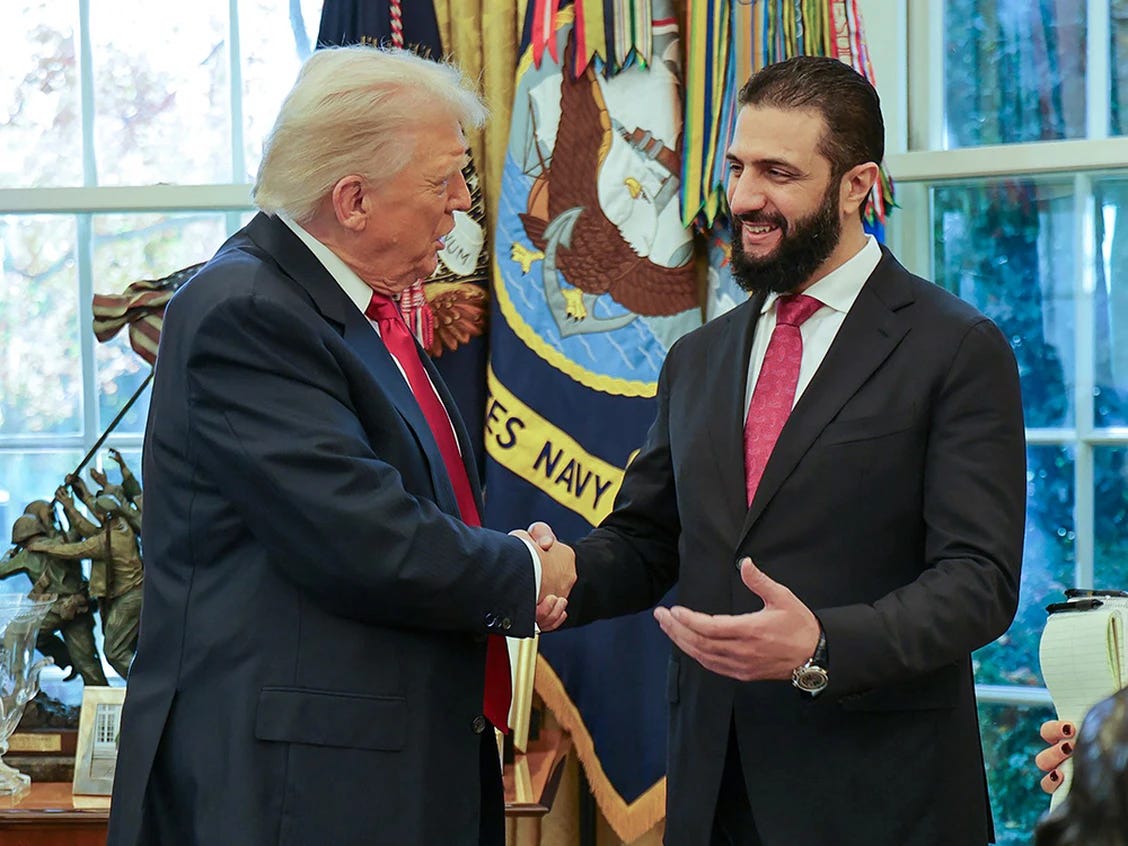Trump's Syria gambit
Whether the President's Syria policy is brilliant or just plain reckless depends entirely on execution
Syrian President Ahmad al-Sharaa spent years as a detainee at Abu Ghraib. This weekend, he was at another undisclosed U.S. military location - this time shooting hoops with a U.S. admiral and nailing three-pointers. By Monday, he was walking into the White House for a meeting with President Trump as the first Syrian head of state to visit since 1946.
Th…




